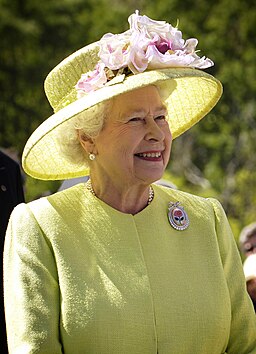“So the small things came into their own: small acts of helping others, if one could; small ways of making one’s own life better: acts of love, acts of tea, acts of laughter. Clever people might laugh at such simplicity, but, she asked herself, what was their own solution?”
Alexander McCall Smith, The Good Husband of Zebra Drive
Teapots and Tarnish
There’s something very community-oriented about a teapot. I have a friend who’s considering a teapot tattoo for this very reason. By virtue of its capacity, the teapot suggests the inclusion of more than one person, and by virtue of its contents it promotes communal relaxation, recreation and refreshment.
I decided to have a tea-party this weekend, and I had already issued the invitations when I came to a sudden and somewhat dreadful realization. While being amply supplied with loose-leaf tea (Ceylon; Earl Grey; rooibos with manuka; green with jasmine), I had only one teapot, and that a small one. There was only one possible solution: mount a raid on the second-hand shops. I heroically volunteered.
Too much choice is stressful, so I made the selection process simpler by rejecting out of hand any which were one-cup, cracked, or lacking a built-in strainer. This reduced the pool of possibles to three, which I duly bought.
So, in addition to my original teapot, a wicker-handled blue with Chinese characters, I now have a round little green pot, a larger honey-brown pot, and a 1 1/2 pint silver pot, which is rather reminiscent of a watering can. (Please do not embarrass the management by suggesting the concept of a matching set.)
The problem with the silver pot was that it wasn’t silver. I mean, it was EPNS (electro-plated nickel silver) but in colour it was more like the sheen on a car-park puddle. Not the sort of look that encourages one to drink the contents. I bought it in the hope that it was just tarnished, and behold, my hope was rewarded.
Not being a fan of the reek of silver-polish, I used a handy little trick passed on to me by the Caped Gooseberry’s mother. She has a history of providing handy tips: when I was eight, she demonstrated how to break an assailant’s nose (without assistant assailant) – a great first memory to have of one’s mother-in-law.
The silver-polishing trick requires hot water, tin foil and washing soda – still available at the shops in this day and age! The tin foil lines the sink or bowl; the hot water is added and the washing soda dissolved in it. In goes the tarnished silver and off goes the tarnish. Remove, rinse, dry. Voilà.
According to the back of my washing soda packet, the soda and tin foil react to produce hydrogen, which removes the silver oxide, aka tarnish. That’s the science, anyway. Frankly, I’m not too fussed as long as it works and doesn’t asphyxiate me. Plus there are bubbles and fizzy noises!
What are your household tips and tricks? And do you have any hints for tea-partying?
Equivocation
Why, I ask myself, must theatre tickets cost so much? Professional theatre, that is. I am a big fan of amateur theatre, largely because as a starving artist I can still afford to see it sometimes. And also because an amateur production costs less, and the amateurs are therefore more likely to take a punt on an unknown playwright 🙂
Very occasionally, however, I’ll splash out on tickets for a professional production, which entails travelling at least as far as Wellington, which is about 20km away (12 1/2 miles for the imperialists).
Last weekend, we went to Wellington’s Circa Theatre to see Equivocation by Bill Cain. I loved it.
The central character is William Shakespeare, struggling with the artistic and ethical challenge posed by being commissioned to write a government propaganda-play about the Gunpowder Plot. On the one hand, the story as they’ve given it to him doesn’t hold together. On the other hand, if he reveals the truth (which he gradually ferrets out), hanging is only the start of what they’ll do to him. Really.
Truth matters. Truth can be dangerous, particularly to the teller. Truth can, in fact, be a matter of life or death.
Enter the delicate art of equivocation, or as Father Garnet (another character) calls it, “how to tell the truth in difficult times”. Whatever one may think of the idea of equivocation (do the ends justify the means, or is deception unethical regardless?) there is an interesting echo of Shakespeare’s dilemma in the modern world, where those who expose politically unpalatable truths still go in fear for their very lives. Manning, Snowden…
All right, the US President isn’t going to have them hung, drawn and quartered, but he does actually have the authority to order their extrajudicial execution. I prefer my own head of state: all the pomp and ceremony with none of the whacking.
Ideally, to my mind, a play should balance being entertaining with having something to say. Worst of all are the plays that have something to say but expect you to pay for the privilege of hearing it, without a scrap of entertainment to sweeten the often bitter pill.
Equivocation manages the balance very well. It’s the sort of play I’d like be able to write myself one day. I tend to be better at the entertaining fluff side of it, but if you look carefully there’s a meaning in there somewhere…
So, if you’re going to be in Wellington in the next couple of weeks, check it out. Clever script, talented actors, great production. Worth every cent, even for a starving artist.






